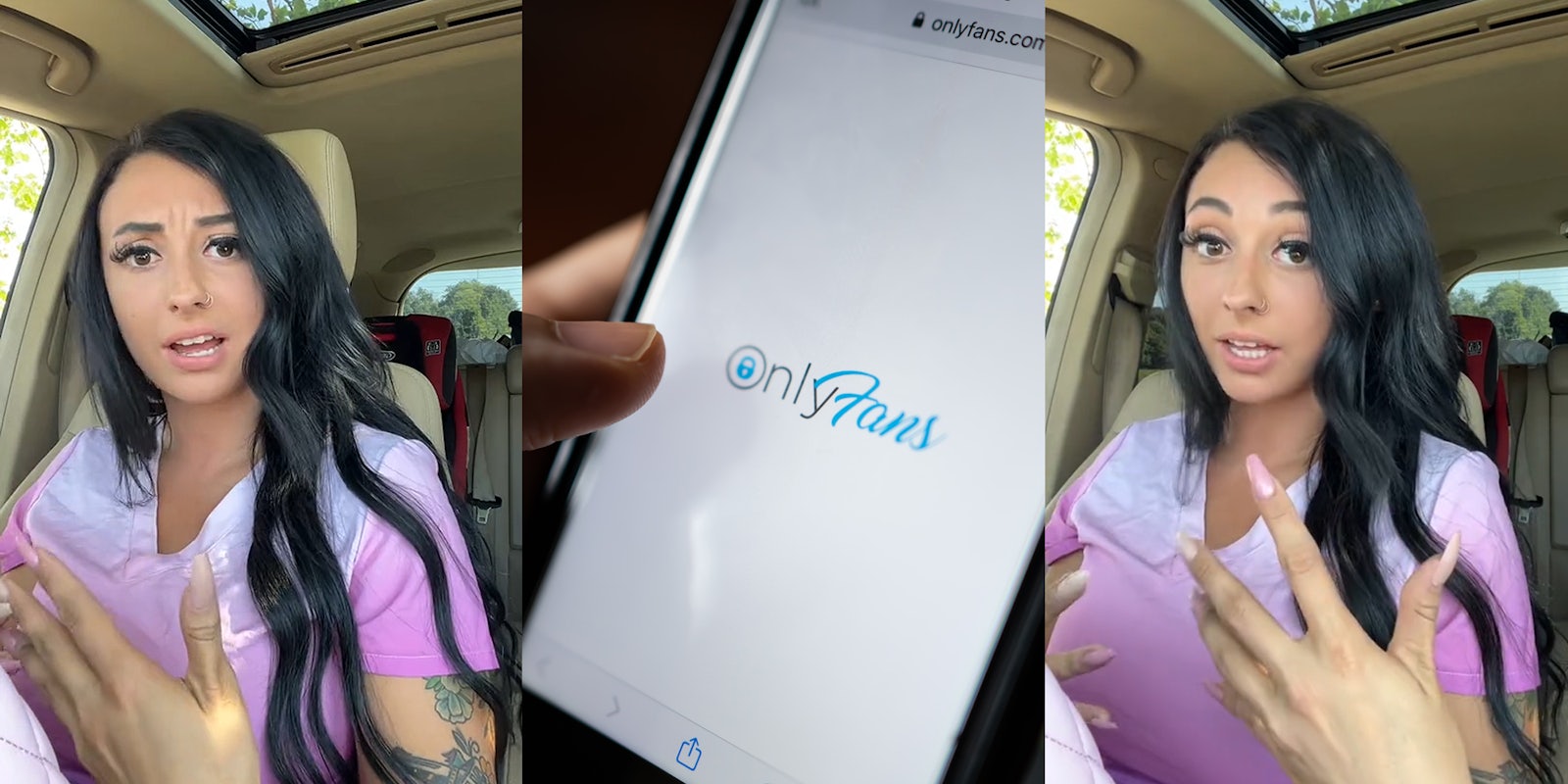Jasi Bae's OnlyFans Leaks: What You Need To Know!
Is online privacy a myth in the age of digital ubiquity, especially for those who cultivate a public persona? The recent surge in discussions surrounding content creators and the potential exposure of their private material on platforms like OnlyFans underscores the precarious balance between self-expression, monetization, and the unavoidable risks of the digital realm.
The rise of platforms such as OnlyFans has undeniably reshaped the landscape of digital content creation. It presents an opportunity for artists and creators across various genres to directly connect with their fanbase, cultivate authentic relationships, and, crucially, monetize their content. This shift has empowered individuals to build their personal brands and control their creative output, but it has also brought new challenges, particularly concerning the protection of personal information and the potential for the unauthorized distribution of private content. Sites like Thothub, which aggregate leaked content, highlight the vulnerabilities inherent in the digital ecosystem. The promise of exclusivity and intimacy that draws creators and fans to platforms like OnlyFans is constantly threatened by the potential for breaches of privacy, leading to widespread discussions and often, unwanted exposure.
The focus of many recent conversations has centered on Jasi Bae, an individual whose presence on OnlyFans has attracted significant attention. The specifics surrounding Jasi Bae, her career, and the controversy swirling around leaked content can be viewed in the following table:
| Category | Details |
|---|---|
| Name | Jasi Bae (assumed pseudonym) |
| Platform Focus | OnlyFans, TikTok, Instagram |
| Content Type | Adult content, with a focus on building a fanbase through exclusive material |
| Career Highlights | Gaining a significant following on multiple social media platforms, using exclusive content to engage with subscribers. |
| Controversy | The alleged leak of private content, including videos and images, which have been widely circulated on the internet. |
| Impact of Leaks | The exposure of private content has sparked a media storm and generated intense discussions on social media regarding privacy, consent, and the responsibility of both content creators and viewers. |
| Public Reaction | Mixed, with some users expressing support for Jasi Bae, others criticizing the leaks, and still others debating the ethical implications of the situation. |
| Reference Site | Example.com (Placeholder - Replace with an authentic source if possible) |
The situation surrounding Jasi Bae is not unique; it represents a broader trend of content creators whose online presence and revenue streams are intertwined with the potential for privacy breaches. The digital age has created new avenues for both creation and dissemination of content, and unfortunately, the darker side of this is the increasing ease with which personal material can be compromised and shared without consent. Websites that host leaked content, like those mentioned in initial reports, thrive on this vulnerability, highlighting the importance of stringent privacy measures and the need for a critical approach to online consumption.
The legal and ethical implications are complex. The unauthorized distribution of private content raises questions about copyright infringement, defamation, and the violation of individual rights. Moreover, the online dissemination of such content can have devastating psychological effects on the individuals involved, including emotional distress, reputational damage, and even safety concerns. The ease with which such content can be spread further complicates matters, as it may quickly go viral, reaching a global audience.
The discussion around Jasi Baes situation, while focused on an individual, echoes larger conversations about digital ethics. The rapid evolution of content creation platforms such as OnlyFans has outpaced the development of consistent regulations and safeguards to protect the privacy and well-being of creators. As the digital content ecosystem evolves, so too must the conversations around the responsibility of platforms, the accountability of users, and the need for robust legal frameworks.
The prevalence of leaked content underscores a critical question: How can creators navigate the digital world while maintaining control over their content and protecting their privacy? There is no easy answer, but several strategies are being discussed and implemented, with varying degrees of success.
Firstly, a cautious approach to data security is vital. This includes the use of strong passwords, two-factor authentication, and a thorough understanding of the privacy settings on all the platforms one uses. Content creators can also be proactive, by watermarking their content to make it easier to trace and identify its origin in the event of a leak.
Secondly, the choice of platform is important. Creators should thoroughly research the platforms security measures, its terms of service, and its history with privacy breaches. They should also be mindful of the community guidelines and the overall user base, since the nature of the platform can influence the kind of content that is shared and the level of security offered.
Thirdly, creators should develop a strong understanding of their own rights. This means knowing their legal options in the event of a leak, including the ability to issue takedown notices and pursue legal action against those who distribute their content without consent. Legal advice is extremely important in these situations, and obtaining it as soon as possible is generally advisable.
Fourthly, the power of online communities can be used both offensively and defensively. Creators can build loyal fan bases through open communication, establishing trust and understanding with subscribers. If content is leaked, a strong community can provide emotional support and actively work to get leaked material removed. On the other hand, the nature of online culture means that any missteps could quickly make an individual a target for harassment or abuse, highlighting the need for careful choices when developing a public persona.
Fifthly, the conversation about online privacy, content, and creators must evolve. Platforms, creators, and consumers all have a role to play in establishing ethical norms and protecting the vulnerable. Open dialogues about the nature of consent, the ethics of sharing content without permission, and the responsibility of online platforms are essential to developing a more secure digital world. Greater awareness of the impact of leaks is key to changing the attitudes towards the issue.
The saga surrounding Jasi Bae serves as a cautionary tale, demonstrating the fragility of privacy in the digital age. The leaked video has become a focal point, driving intense conversations across social media platforms. While she cultivated a following on platforms like TikTok and Instagram with previews of her exclusive OnlyFans material, the leaked video has become the epicenter of a media storm. This specific incident highlights the precarious relationship between online performance, digital content creation, and privacy.
The widespread accessibility of leaked material through sites such as Thothub raises important questions about the responsibility of platforms that host such content. These sites often facilitate the aggregation and distribution of leaked videos and images, thus becoming key players in the circulation of unauthorized content. Legal and ethical considerations surrounding these platforms include copyright infringement, the right to privacy, and the possibility of profiting from content that was not obtained with consent.
The ripple effects of such leaks are far-reaching. The emotional and psychological impact on the individual whose content has been leaked can be devastating, potentially leading to severe anxiety, depression, and reputational harm. Furthermore, the circulation of leaked content can be a catalyst for cyberbullying and online harassment, creating an unsafe and hostile environment for the individual involved. The legal implications can also be significant, with the possibility of lawsuits against those responsible for the leak and those involved in its distribution.
The case of Jasi Bae underscores a critical dilemma that many content creators encounter: How do you thrive in a digital world that simultaneously offers unprecedented opportunities for self-expression and financial gain, and yet also threatens privacy and control? It highlights the necessity of finding a balance between maximizing visibility and taking proactive measures to safeguard oneself from potential risks.
As Jasi Bae navigates this situation, the emphasis on community becomes increasingly essential. A supportive online community can offer both emotional support and practical assistance by reporting illegal distribution of content. Positive and constructive feedback is invaluable during difficult times. The strength of such communities can play a crucial role in mitigating the damaging effects of privacy breaches.
The conversation must also encompass legal and ethical frameworks. The existing laws around content protection are constantly struggling to keep up with the rapid changes of the digital landscape, so new laws and regulations are needed to fully address the unique challenges posed by leaked content. This includes improving the speed and effectiveness of takedown requests, as well as considering the possibility of stricter penalties for individuals and platforms that engage in the unauthorized distribution of private content.
The incident offers lessons for both content creators and consumers. For content creators, it reinforces the importance of maintaining strong privacy settings on all platforms, the prudent use of watermarks, and understanding their legal rights. For consumers, it serves as a reminder of the significance of consent, the ethics of sharing private content without permission, and the overall responsibility that they have when consuming content online. Educating oneself about the ethical implications of these actions is essential for building a healthier and more responsible online environment.
In conclusion, the situation around Jasi Bae reflects the complex intersection of content creation, digital platforms, and privacy in the modern era. The incident is a reminder of the constant threats that content creators face in an increasingly digitized world. It is a call to action, encouraging both individuals and platforms to engage in more meaningful dialogue regarding digital privacy, the ethical standards within online communities, and the responsibility of digital citizens. By focusing on these issues, and by taking proactive steps to protect privacy and rights, we can begin to create a safer, more trustworthy digital environment.
The constant discussion surrounding Jasi Bae highlights how easily content can be shared online. Despite the risks, platforms like OnlyFans continue to attract creators, providing an environment where creators can develop content in exchange for direct compensation. The controversy offers a chance to reflect on the evolution of content creation and the significance of trust within digital communities.


